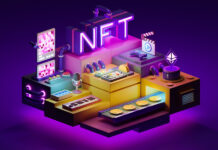Despite a blanket ban on cryptocurrency trading and crypto mining by Chinese regulators, blockchain-based NFT applications are still being widely experimented with by domestic companies. Allen Sun, founder of tech startup BlockVita, talks to China Business Law Journal about what really constitutes the NFT industry in the country, what legal constraints exist, and what we should understand about the hype
China Business Law Journal: Could you introduce your company and explain how the current interest in non-fungible tokens (NFTs) in China has emerged?
Allen Sun: Our platform, BlockVita, is a bitcoin application related content discussion community that provides an interaction technology service, with a focus on the to-C service (serving individual customers). “Vita” means vitality, and on our platform blockchain players post their observations, share their experiences, and exchange with each other about visible and interesting blockchain products and applications worldwide.
Because the bitcoin application sector itself is relatively new, companies both large and small are exploring it. Among all applications, NFT is the most popular one. In previous years, discussions about NFTs were confined to smaller circles; from 2021 onwards, NFTs are gaining a wider audience and global attention, including in China.
CBLJ: Compared with international practice, what forms of NFT business are Chinese companies currently conducting?
Sun: The difference between the domestic and overseas environment is relatively easy to summarise. There is more exploration of public chain ecology overseas, which is also more active, while relatively speaking the NFT experimentation of the more popularly known tech giants in China is basically done in the form of an alliance chain.

Founder
BlockVita
A public chain is an unlimited blockchain network where anyone can join at any time, and anyone can see the ledger and participate in its consensus process. It is decentralised, with no single entity running the network. The well-known Ethereum is a typical public chain application.
By contrast, an alliance chain is a blockchain that requires permission to join, and is jointly managed by multiple organisations or institutions. It adopts partial decentralisation structure and is only owned by members within the alliance to a certain extent. Typical examples for alliance chains include the Ant Chain used by Alipay WhaleTalk and the Zhixin Chain used by Tencent Magic Core.
You must be a
subscribersubscribersubscribersubscriber
to read this content, please
subscribesubscribesubscribesubscribe
today.
For group subscribers, please click here to access.
Interested in group subscription? Please contact us.





















